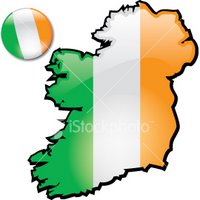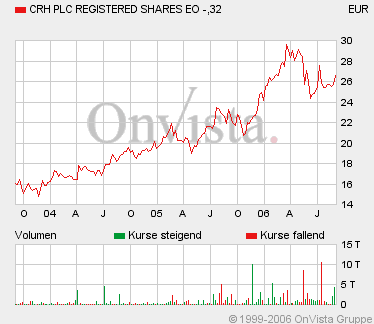irland / ireland usa reloaded 2004/2005
mehr zu irland http://immobilienblasen.blogspot.com/2006/09/irland-ireland.html

von bloomberg:
Irish Mania for Homeownership Squeezes Consumers as Rates Rise
highlights:
Sept. 5 (Bloomberg) -- Ken McKenzie, a university researcher in Dublin, is shelving his overseas holiday plans this year. He blames the European Central Bank for keeping him at home.
``I had been thinking about Istanbul, Stockholm or maybe Canada,'' says McKenzie, 30, who now spends 38 percent of his 2,500-euro ($3,215) monthly salary to pay an adjustable-rate mortgage. ``But with rates going up? Forget about it.''
In Ireland, where almost eight in 10 dwellings are owner- occupied, the frenzy for property is forcing many buyers to scrimp after prices quadrupled in a decade. The Irish central bank is concerned about a potential collapse as interest rates rise, pushing debt costs higher
``There's a sense of a bubble,'' says Alan Barrett, senior economist at Dublin's Economic and Social Research Institute. ``One in eight workers are in construction. If there's a wobble, it gives you the potential for a big unemployment increase.''
Ireland and Spain are likely to be among the hardest hit as the ECB raises rates, according to a February report by JPMorgan Chase & Co. Spurred by record-low interest rates and falling unemployment, Irish house prices rose 335 percent to an average of 303,247 euros (389.000$) from 1995 to 2005, the fastest growth among 18 countries surveyed by the Paris-based Organization for Economic Cooperation and Development.
Seventy-seven percent of Irish homes are owner-occupied, compared with 45 percent in Germany and 58 percent in France, according to Ireland's statistics office.
``Property is part of the psyche here,'' O'Dwyer says. ``People found out if you bought property you couldn't go wrong.''
Irish Central Bank Governor John Hurley recently reminded consumers that house prices can fall.
Dublin-based Irish Life & Permanent said June 23 that new home loans rose 60 percent to 4 billion euros in the first six months of the year, compared with the same period a year earlier
Prices may remain stagnant in 2007, after 10 percent growth this year, as banks rein in lending to first-time buyers, (wunschdenken, wishfull thinking)
As prices rose over the past decade, debt soared. Mortgage debt held by homeowners jumped to about 109 percent of disposable income in 2005 from 46 percent in 1998, as the Irish took advantage of falling interest rates to take bigger loans.
The buying spree is being stoked by generous tax incentives for property owners. The government allows a deduction for mortgage interest and doesn't tax property or capital gains on the sale of owner-occupied homes.
Housing Minister Noel Ahern said Aug. 30 he wants to raise the capital gains tax for property investors from its current 20 percent level to cool speculation and ease price pressure on first-time buyers. (spätestens das wird den bubble zum platzen bringen)
Royal Bank of Scotland Group Plc's First Active unit in July 2005 became the first lender to market mortgages that cover the full cost of a home. It has since been followed by Irish Life & Permanent and Bank of Ireland Plc, the country's biggest lender by assets
Ireland's financial regulator, Patrick Neary, on July 25 said he was concerned about growing demand for 100 percent mortgages as well as interest-only loans in which borrowers don't pay back any capital. The products are ``not suitable for everybody
The housing crunch has led some aspiring homeowners to camp out for the chance to buy properties that don't yet exist. (usa 2002-2005)
In June, would-be property owners lined up for as long as four days to secure apartments at the Hunters Wood development that is still under construction in the foothills of the Dublin mountains 10 kilometers (6.2 miles) southwest of the capital. Sherry Fitzgerald, the Dublin-based company handling the sale, says it expects more campers when the next set of homes goes on sale later this month.
As many as 75 percent of new homes in Dublin are being sold before they're built, says Paul Murgatroyd, an economist at Dublin-based real estate company Douglas Newman Goode.
Prices in Dublin, as measured by square meter, are now higher than those in London, Zurich and Paris, the OECD says
Building companies, which account for one-fifth of Ireland's 160 billion-euro economy, employ 13 percent of the working population, according to the International Monetary Fund. Some 86,000 houses were built in Ireland last year, or 21 dwellings for every 1,000 people, four times the European average. (größerer anteil als in den usa)
CRH, with 66,000 workers, is the largest publicly traded employer in Ireland and ranks No. 3 in market value behind Allied Irish Banks Plc and Bank of Ireland.

As rising mortgage payments eat into wage packets, spending on everything from holidays to furniture may slow. First-time homebuyers are already spending 27 percent of their incomes on repayments, almost double the level 10 years ago, according to Dublin-based EBS Building Society, the country's biggest customer-owned lender.
The challenge of finding affordable property is driving people farther away from Dublin, a city of 1.1 million people.
The Dublin commuter belt has expanded to reach 100 kilometers from the city, from 25 kilometers in the 1980s
Aileen Power has just moved to Kildare, commuting a total of three hours to and from her office in Dublin. She moved from a two-bedroom cottage in Ringsend, 25 minutes from her office, to a 415,000-euro, four-bedroom house in Kildare.
``It's about bang for your buck,'' says Power, a marketing executive. ``There's no way we could have afforded anything like it in Dublin.''
McKenzie, the university researcher, is carrying a 100 percent, 35-year mortgage on his 210,000-euro apartment in the commuter town of Ashbourne, County Meath. He estimates that ECB rate rises will boost his monthly bill above the 940 euros he pays today. When he bought the two-bedroom apartment in December, the payment on his mortgage was 810 euros.
wow! das ist wirklich die blaupause der geschichten aus den usa die ich die letzten jahre gelesen habe. gebe irland noch maximal ein paar quartale bevor das ganze den bach runtergeht. werde evtl. crh shorten.
jan-martin
disclosure: vielleicht / maybe short crh die nächsten tage / the next days
![[Most Recent Quotes from www.kitco.com]](http://www.kitconet.com/charts/metals/gold/t24_au_en_usoz_2.gif)
![[Most Recent Quotes from www.kitco.com]](http://www.kitconet.com/charts/metals/gold/t24_au_en_euoz_2.gif)

0 Comments:
Post a Comment
<< Home